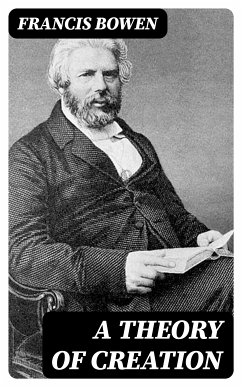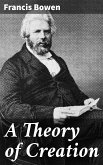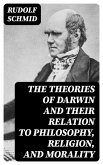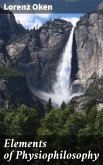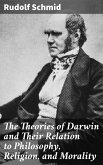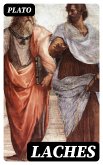In "A Theory of Creation," Francis Bowen embarks on a profound exploration of the philosophical and theological underpinnings of the creation process. Through a meticulous examination of the interplay between science and faith, Bowen eloquently discusses the principles of natural philosophy and metaphysical inquiry, advocating for a harmonization of emerging scientific discoveries with traditional religious beliefs. His literary style is characterized by rigorous argumentation and an eloquent prose that invites readers into a nuanced dialogue, reflecting the mid-19th century's intellectual climate where burgeoning scientific rationalism grappled with established religious doctrines. Bowen, a prominent American philosopher and historian of ideas, was deeply influenced by the intellectual currents of his time, including the transcendentalism that permeated New England. His academic pursuits, particularly in the realms of philosophy, science, and theology, informed his conviction that a synthesis of knowledge could lead to a deeper understanding of both the natural world and the divine. This book represents his endeavors to bridge the apparent chasm between faith and rationality, offering insights that resonate with contemporary debates surrounding science and spirituality. This seminal work is highly recommended for scholars, theologians, and inquisitive readers alike, as it challenges preconceptions and encourages a thoughtful consideration of the relationship between creation and scientific inquiry. Bowen's articulate synthesis provides a refreshing perspective that remains relevant, prompting readers to engage with the fundamental questions of existence and our place in the universe.
Dieser Download kann aus rechtlichen Gründen nur mit Rechnungsadresse in A, B, BG, CY, CZ, D, DK, EW, E, FIN, F, GR, H, IRL, I, LT, L, LR, M, NL, PL, P, R, S, SLO, SK ausgeliefert werden.

